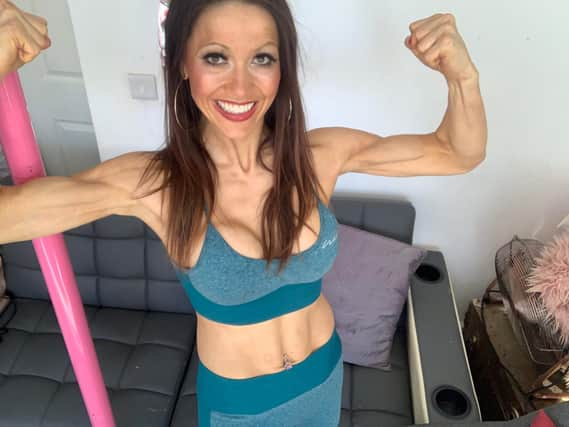Fitness: Getting the right foundations in place for posture and core stability


And with our professional and personal life becoming increasingly blurred, how does this impact on our core, (pelvic floor) and our overall well-being?
“Roll your shoulders back, pelvis tucked in, spine in neutral and feet hip width apart and breathe from the diaphragm,” is how I begin instructing a dance fitness class but these are also fundamentals in how we should hold ourselves throughout daily life too.
Advertisement
Hide AdAdvertisement
Hide AdPosture awareness and holding a neutral spine is key as it impacts our flexibility and strength, not to mention making us feel more sluggish.
In tandem with optimal posture, aka the ideal position to minimise stress on the vertebrae and its ligaments which allows musculature to perform in a balanced way and maintain this spinal curvature, is to build our core stability, building our bodies from the inside out.
The core should stabilise the upper and lower body, protecting our spine and reducing injury or overuse in certain areas.
If we simply train a certain muscle groups to attempt to achieve a ‘desired aesthetic,’ neglecting our foundations, what we can be left with is tight, shortened and imbalanced muscles.
Advertisement
Hide AdAdvertisement
Hide AdAfter all, we wouldn’t decorate a home that was falling down, so let’s protect your spine and give yourself better control of your body when exercising, moving or even dancing!
So, whether you find a Pilates, Yoga, Core Workout or even Belly Dance class, which I teach, I would use these as a starting point to build your core stability, strength, pelvic floor and flexibility to achieve optimal long-term results.
Some of my favourite Core Stabilisation exercises, ideally to do with a trainer, are: Planks (prone bridge on elbows) or Side Planks, Marching Hip Bridges, Dead Bugs, Quadruped Opposite Arm to Leg and, Stir pots with a Swiss ball.
But step away from the Crunches as these can be hard on your back, pushing your curved spine into the floor as well as pulling on your lower spine if your hip flexors are tight.
Advertisement
Hide AdAdvertisement
Hide AdThe core is built on much more than a few half-hearted abdominal exercises - so focusing on core focused and postural exercises take priority.
When it comes to postural exercises, try the Child’s Pose, Downward Dog or even deep breathing.
Focus on form over failure when it comes to any exercise.
And when it comes to navigating an unavoidable sedentary lifestyle, such as working at home or in an office, which we know can play havoc on our health, adjust your environment to protect your spine, improve your posture and take plenty of breaks to stretch, move and most of all, focus on building from the inside out which will not only make you feel-good but look-good too.
For more tips, follow @MamaMeiBlog & @GreenHealthPT and go to: mamamei.co.uk